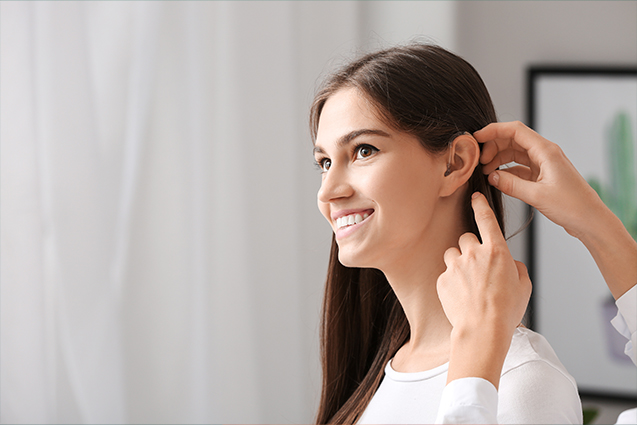Why Proper Hearing Aid Fitting Is Essential for Better Hearing

Hearing aids are powerful tools that help restore clarity in everyday conversations and reconnect you with the world around you. But to work effectively, they must be fitted and programmed to match your unique hearing profile and ear anatomy.
Personalized Fitting: The Key to Comfort and Clarity
No two ears are alike—and neither are the types or degrees of hearing loss people experience. That’s why a professional fitting is critical. It ensures your hearing aids are:
- Calibrated to your specific hearing thresholds
- Shaped to fit your ear comfortably
- Tuned to deliver optimal sound quality
Without this customization, you may experience discomfort, poor sound clarity, or reduced benefit from your device.
What Happens During a Fitting Appointment
Your fitting session is more than a technical adjustment—it’s a collaborative process. You’ll work with your audiologist to:
- Test and fine-tune sound levels
- Review how to insert, clean, and store your hearing aids
- Ask questions about daily use and maintenance
- Share feedback on comfort and performance
This is also your opportunity to discuss any challenges and request adjustments that improve your hearing experience.
Adapting to Hearing Aids Takes Time
Hearing sounds you haven’t heard in a while can be overwhelming at first. Like any new skill, wearing hearing aids requires patience and practice. Gradual use and regular follow-ups help you adjust more comfortably and confidently.
Follow-Up Matters
After your initial fitting, your audiologist may schedule a follow-up to assess how well the settings are working and make refinements. These visits are essential to ensure your hearing aids continue to meet your needs as you adapt.
Invest in a Fitting That Works for You
Your hearing needs are as individual as you are. A proper fitting helps you get the most out of your hearing aids—whether that means clearer conversations, better focus, or more confidence in social settings.
For personalized fitting and support, consult your audiologist to ensure your hearing aids are optimized for your needs.

